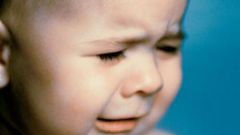Conduct disorder and personality
Often people who have suffered a concussion, complain about appearing in their behavior, irritability and aggressiveness. Even small problems cause them to have anger and nervousness. They are either whiny, or rude, their mood is constantly changing – from ominously quiet hostile to bright. They don't notice the joyful moments of life, seeing only the negative, offended on other people, consider themselves misunderstood and deprived of attention. If the injury was observed similar symptoms in posttraumatic period, they significantly worsen.
Scientists noticed that if a person is injured frontal part, then it commonly occurs a state of euphoria, reduction of critical attitude to himself and his actions. Surrounding it is perceived as arrogance or pride.
Cognitive disorders
After a concussion, people often can't focus, get tired faster, especially after mental work. They become sensitive to the weather, during rains, snow storms, magnetic storms on the sun, solar and lunar eclipses, they suffer a headache, noted lethargy, weakness, depressed mood. Memory: the person can't remember the author's familiar lines, or music, his calculations were inaccurate, he is confused in grammar rules, etc.
Vegetative-vascular dystonia
Traumatic brain injury can damage the autonomic nervous system, thereby increasing the risk of failure of the heart and blood vessels. Inadequate circulation of blood disturb the function of all organs.
Psychotic symptoms
After a concussion psychotic symptoms occur not very often, and yet the precedents are. In these cases, talking about the damaged parts of the brain responsible for sight, smell, perception of hearing and speech. Victims are haunted by hallucinations, i.e. hearing voices, seeing some images. Sometimes he becomes obsessed with delusions (e.g. of world domination or global surveillance of him by the intelligence, etc.). This is especially true with those who hit the occipital part of the head.
Post-traumatic epilepsy
There is a perception that post-traumatic epilepsy may occur only when severe head injury with memory loss or a deep swoon. However, analysts say the possibility of the emergence of a persistent, recurring epileptic seizures even when a slight external impact. Or, doctors stress, there is activation of the latent foci that were not given to know about yourself before. This kind of epilepsy occurs most often when the injury falls on the temporal region or the crown.
The initial attacks can go from mild symptoms, they paid little attention, and the person remains untreated for a long period of time. Meanwhile, it directly affects cognitive ability, mental condition of the patient.
Neuroses and psychoses
A very common consequence of brain concussion – neurosis. Constantly pursuing the sick person the sense of strong anxiety, fear, horror, the absolute inability to concentrate, engage in training or employment – these and other symptoms of neuroses prevents people to live a full life in society. Neurosis, if not treated, can quickly progress to psychosis. And this is a drastic disturbances in the perception of the world. Without professional treatment psychosis threaten the development of dementia and other serious disorders of the brain.


